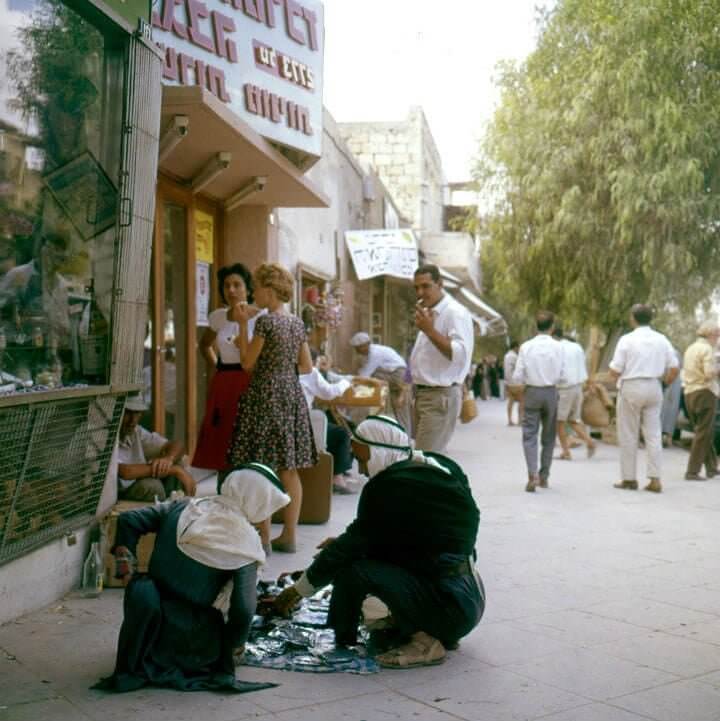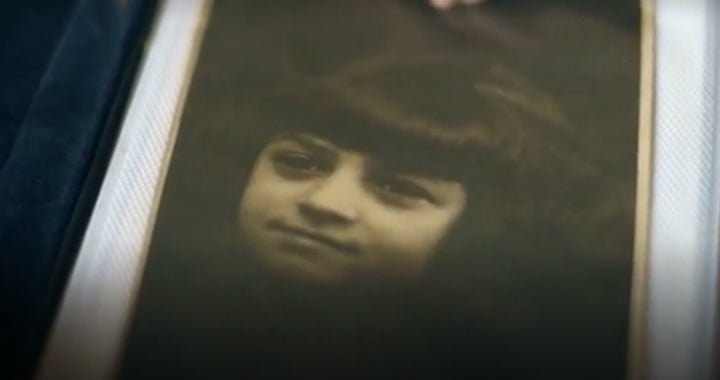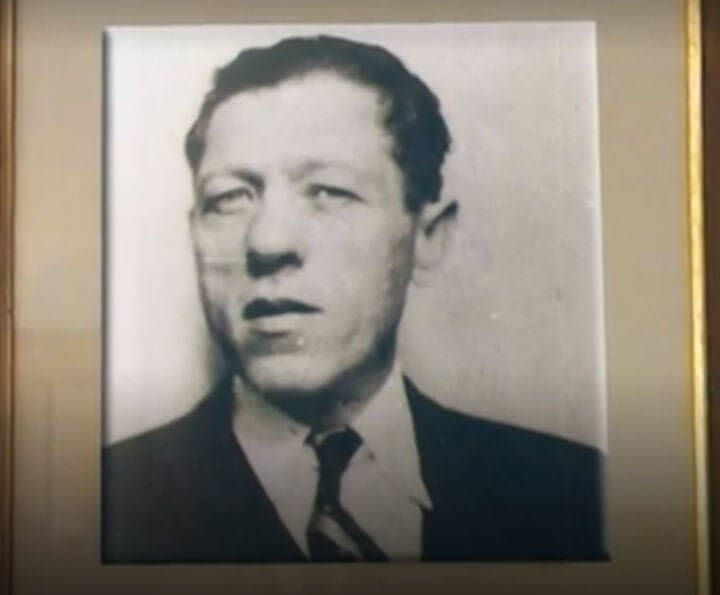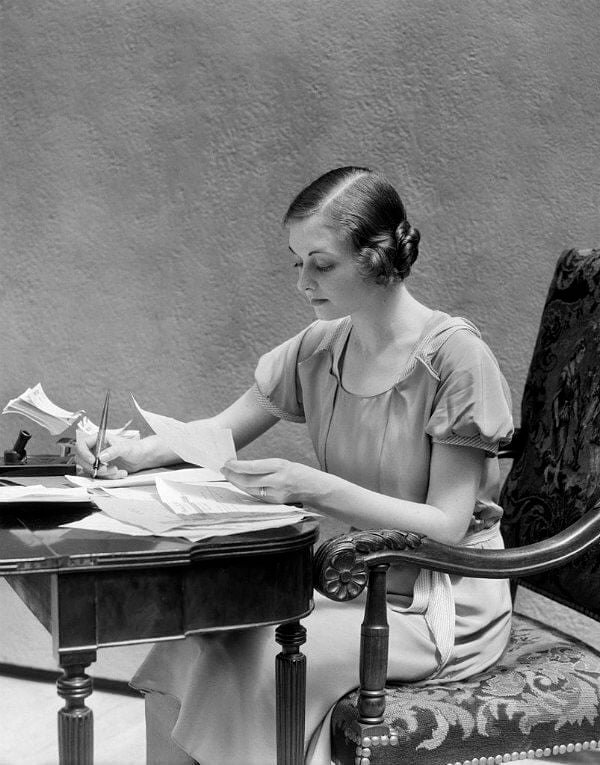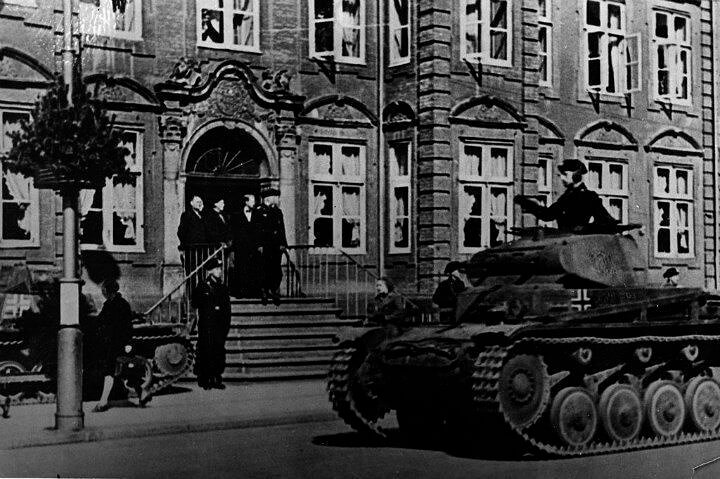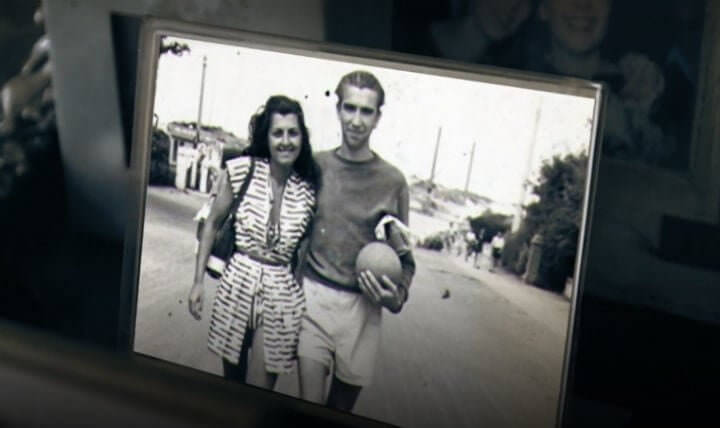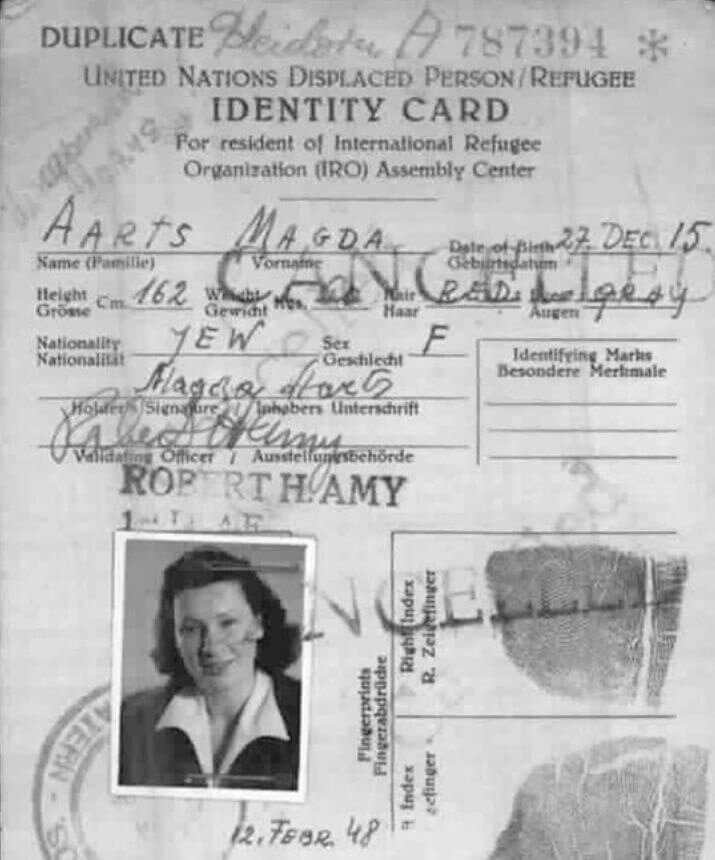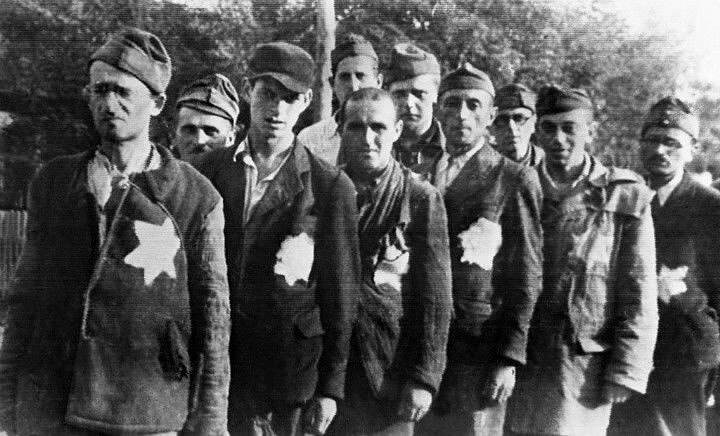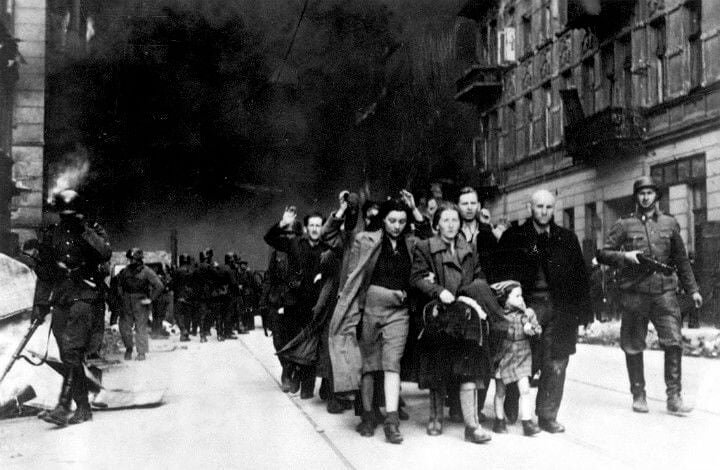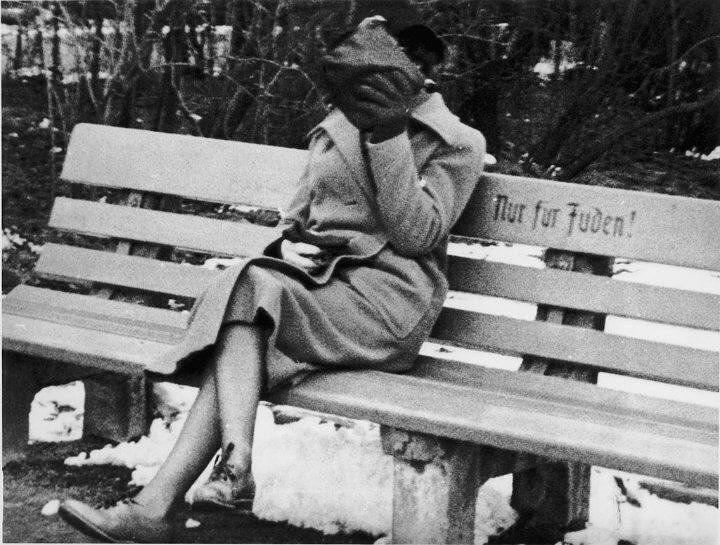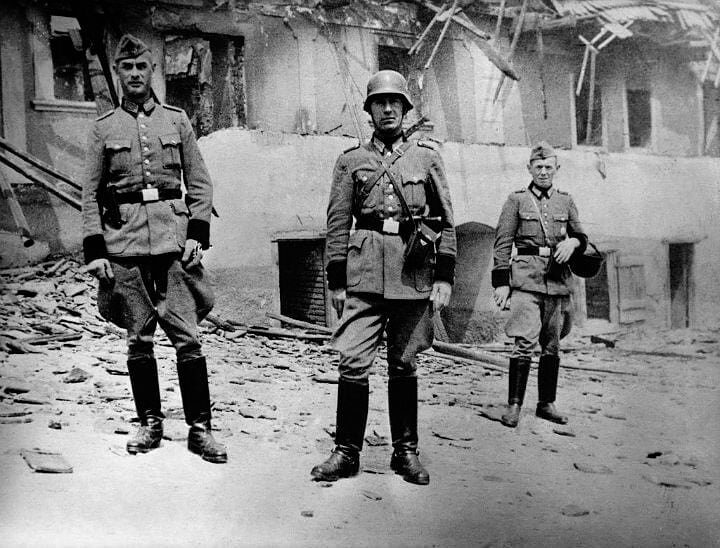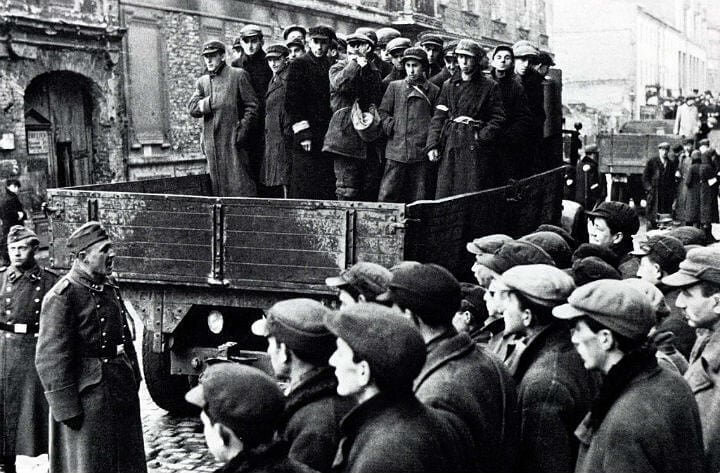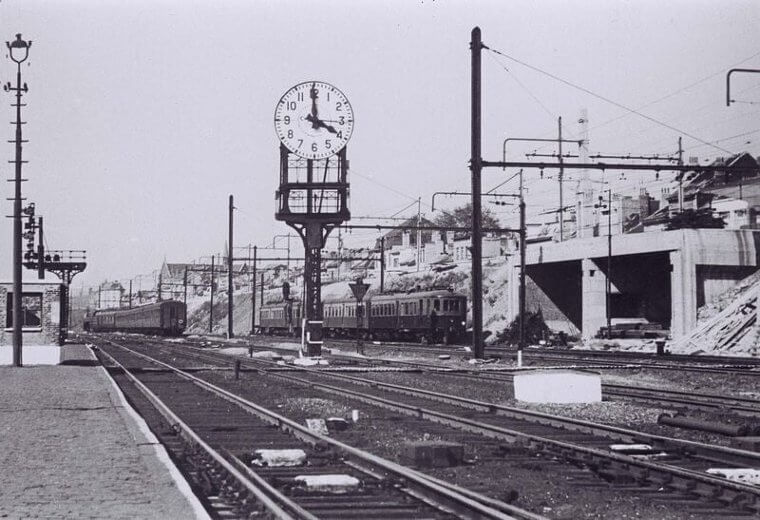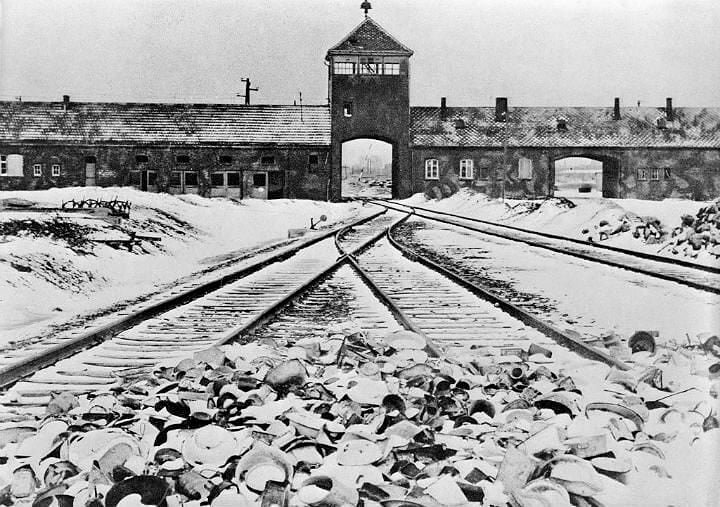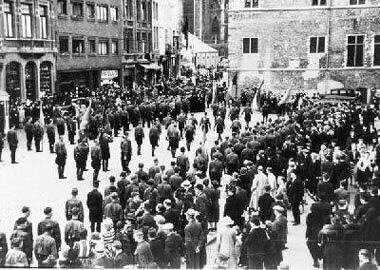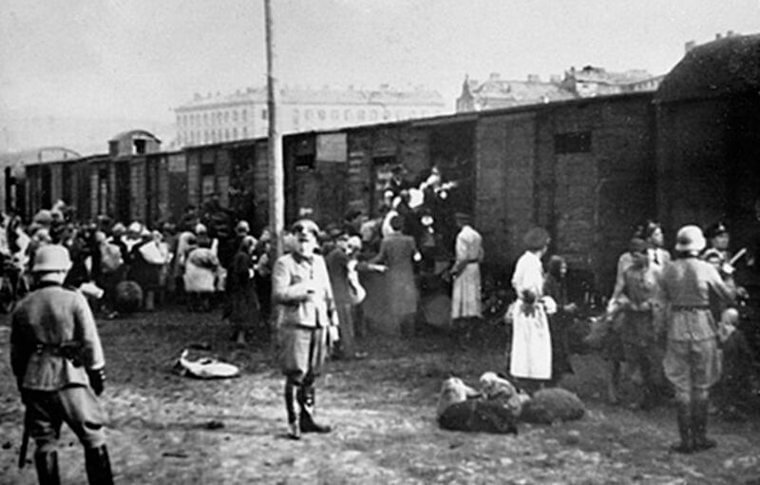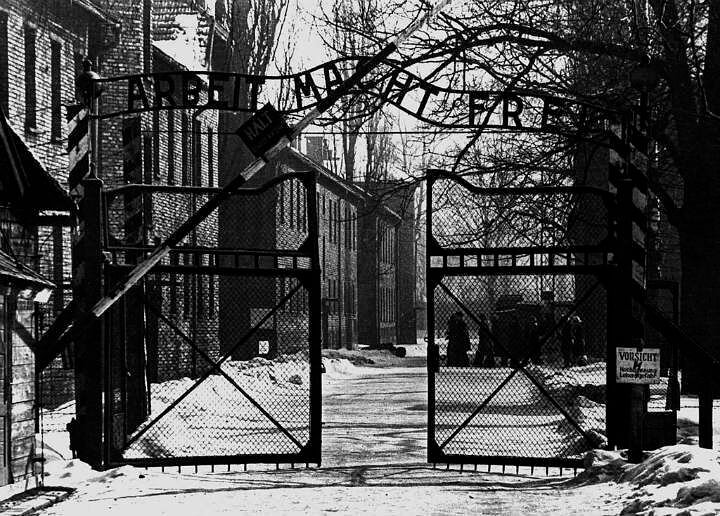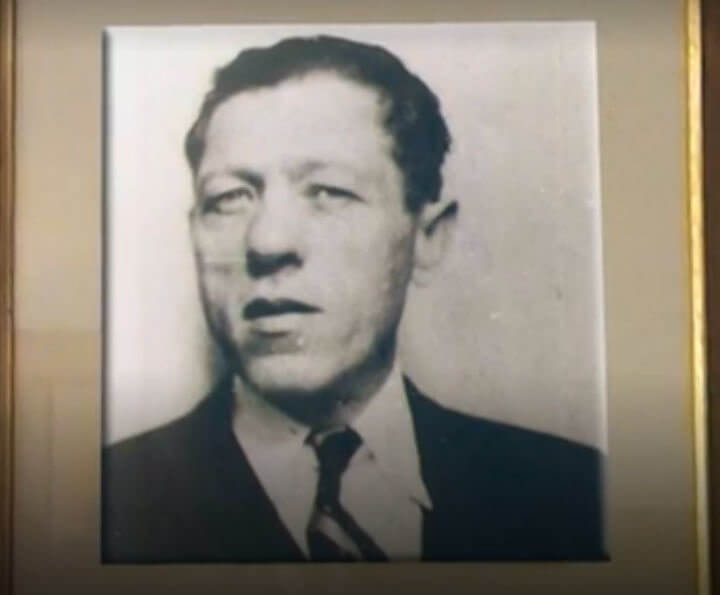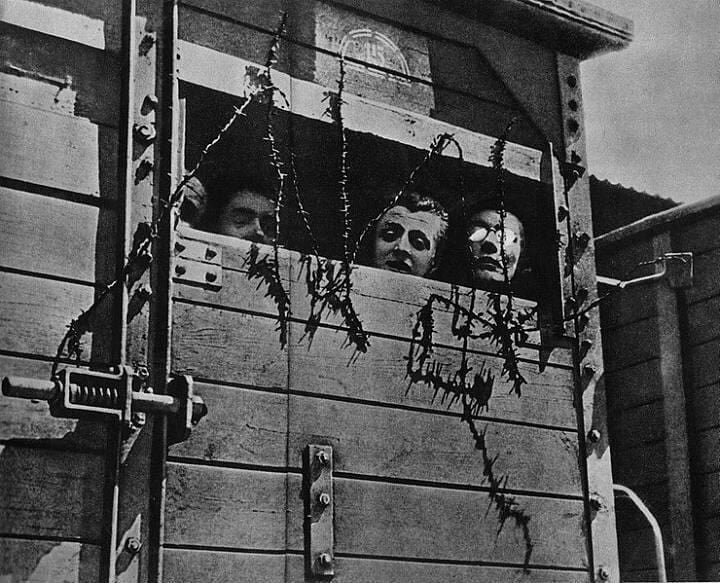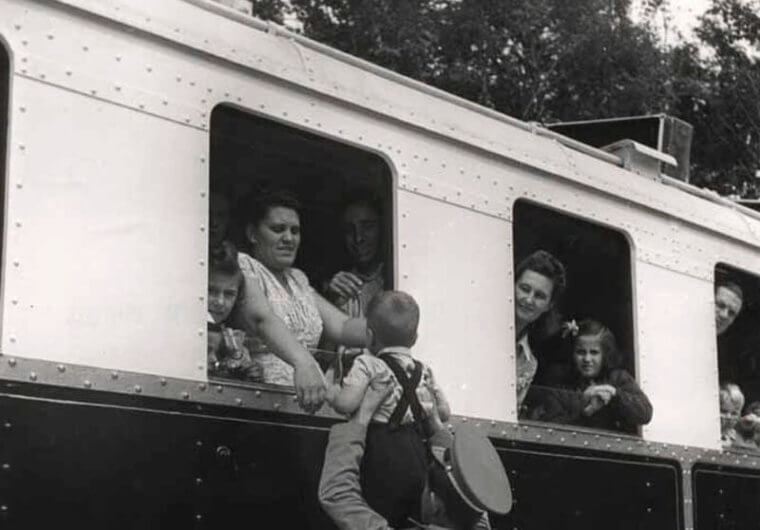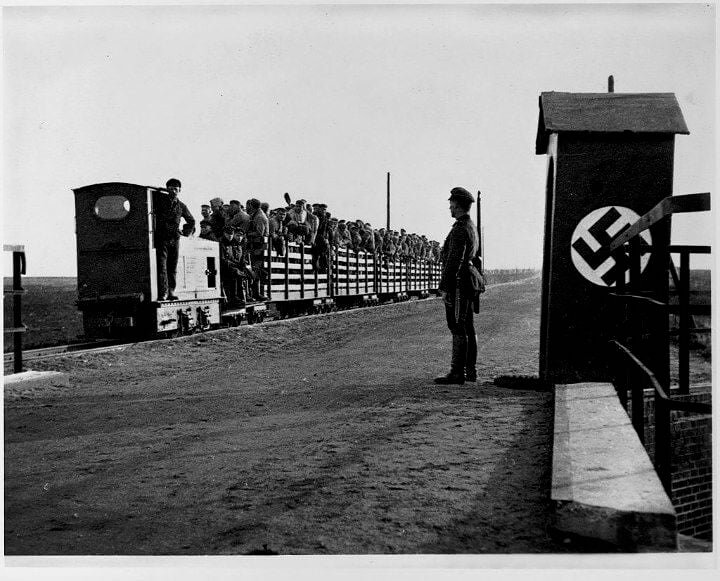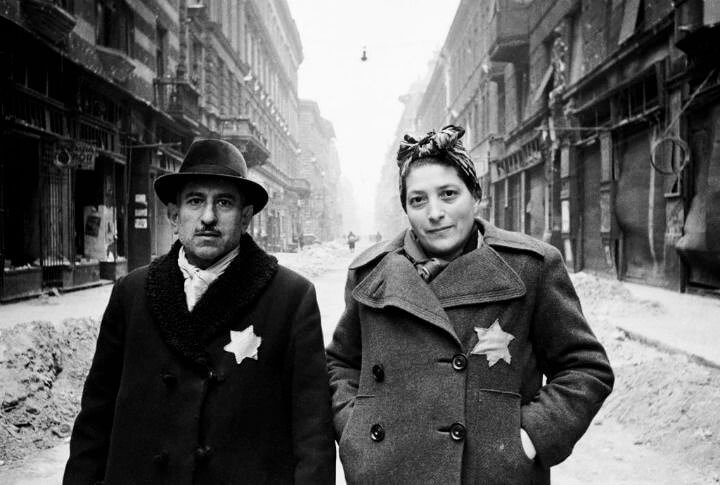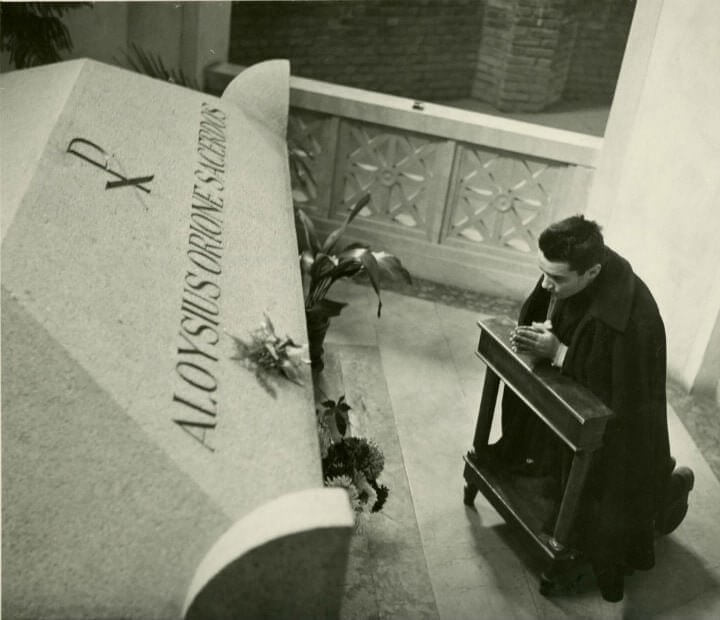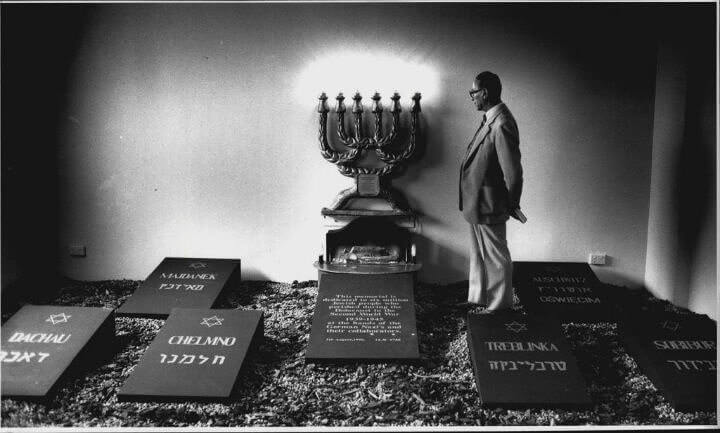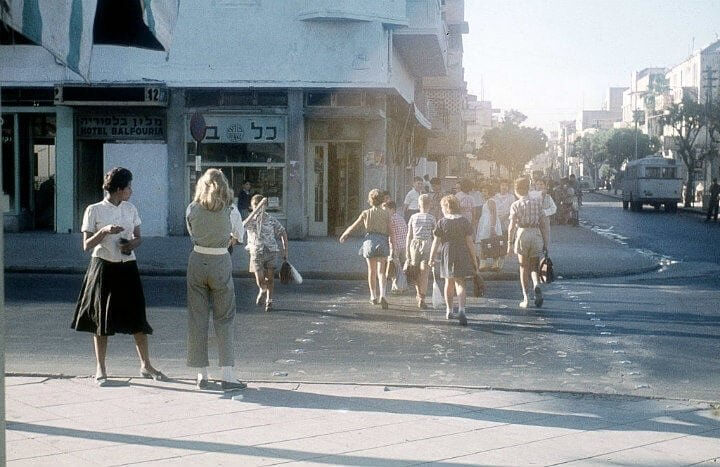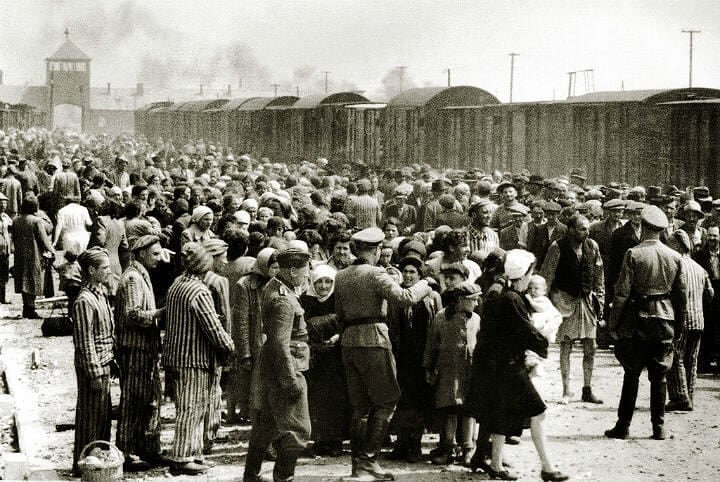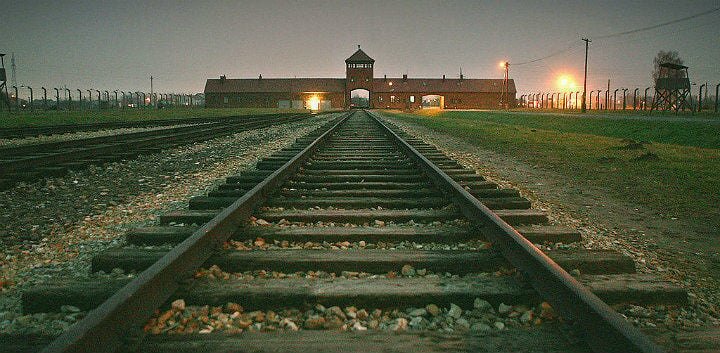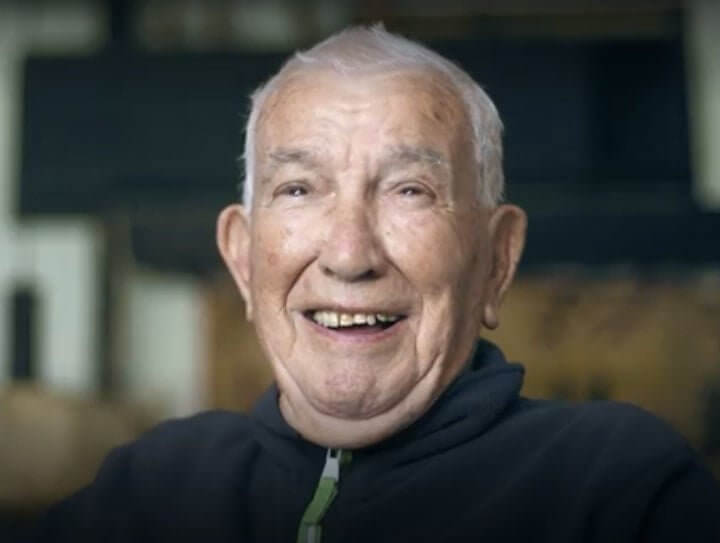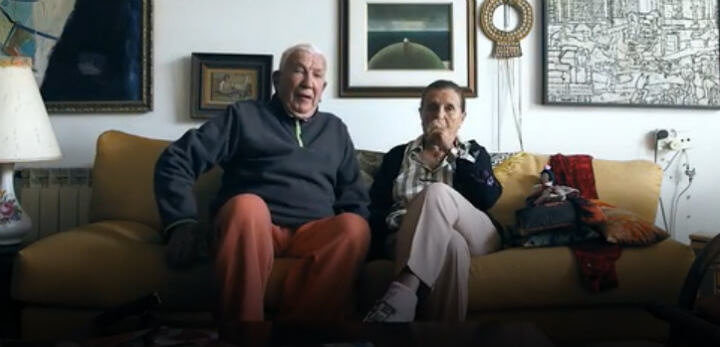At just 21 years of age, Claire Prowisor had to make a devastating decision: to save her own life or save her father's. This event took place in the context of one of the darkest hours of history, the Holocaust. It was something that the young woman had to live with for years until a dramatic event many years later changed everything for her.
This happened when, years after the original heart-wrenching incident, Prowisor was the subject of an incredible coincidence. Walking down the street in a country far from home, a stranger suddenly came up to her and somehow knew her name. What’s more, the stranger had an important message which would change the course of her future.
This happened when, years after the original heart-wrenching incident, Prowisor was the subject of an incredible coincidence. Walking down the street in a country far from home, a stranger suddenly came up to her and somehow knew her name. What’s more, the stranger had an important message which would change the course of her future.
A Serendipitous Meeting
A South American couple was on holiday far from home, in Israel. They were walking down the street, enjoying a sunny day when suddenly they heard someone call out “Clairette!”. Looking around, they saw a woman – a complete stranger.
Claire was stunned to come across this stranger, so far from home, who somehow knew her nickname. “I don’t know you,” she told the woman, who replied mysteriously “But I know you. I was there...”
Immigrant From a Distance Land
Klara Prowisor was born in Germany, just outside Hamburg, in 1922. Her parents were Jewish, with her father hailing from Poland and her mother coming from another part of Germany. When she was young, her father would call her by the nickname of Klärchen.
She changed her name to the French version of the same name "Claire" during her childhood when the family moved to Belgium. Her parents moved the family to Brussels hoping they would find more opportunities and a better life there. However, things were not that easy.
A Difficult Childhood
The dream of a better life in Brussels did not turn out exactly as they had hoped. The family struggled with poverty, as Claire’s father Chaskel Prowisor struggled to find work, as he had no work permit for Belgium. He became depressed, sometimes looking to alcohol for comfort, and found himself caught up in the world of crime to make ends meet.
Claire’s father Chaskel was sent back to Germany multiple times. It was a trying childhood for Claire and her three younger brothers and sisters. But even as a child, Claire was driven to help her father and to improve her family’s situation.
A Daring Young Woman
After seeking a better life in Belgium, the family found that they struggled to make ends meet. 15-year-old Claire Prowisor went out to work in order to help her father Chaskel. In fact, she became the primary breadwinner in the family. But Claire wanted to do more to help her father and their family, so she daringly wrote a letter to the Queen, appealing to the monarch for assistance.
It may have seemed like a shot in the dark, but Claire’s gamble paid off. Queen Élisabeth agreed to help and said that Chaskel would get his work permit, along with a fixed salary which would be the same as Claire had been earning. Things finally started to look up. However, the family did not know that catastrophe was just around the corner.
Descent Into Terror
In May of 1940, the Nazis invaded and occupied Belgium, bringing the country into World War II. Claire Prowisor has now 18 years old and she watched in horror as her adopted home descended into a place of danger and terror, as Belgian Jews became subject to greater and greater persecution. As Jews, Claire and her family were not exempt from this treatment.
Jews were forbidden from certain jobs. Businesses had to announce in their window if they had Jewish employees. Synagogues were burned. Jews were forced to wear a yellow star in public. Yet even as conditions deteriorated for Claire and her family, she found one huge spark of light.
Love In a Warzone
Despite everything, Claire managed to find love in the midst of the terrifying occupation. She wanted to fight against the circumstances Belgium found itself under and got involved with an underground anti-Nazi, Communist organization. It was here that she met a young Jewish man with the same ideals, Philippe Szyper.
The two young rebels shared a passion for politics and a desire to challenge the totalitarian Nazi regime. The couple quickly fell in love and were married in 1942. To the outside world, the young bride was an ordinary woman, working as a tailor. Behind closed doors, she and her husband worked to undermine the Nazi occupiers.
The Defiant Young Couple
In Nazi-occupied Belgium, all Jews were required to register with the authorities. However, Claire and Philippe refused to do so. Philippe managed to get hold of a green Belgian passport, a forgery, which showed him as non-Jewish. Claire, as an immigrant, faced extra challenges, but she remained resolute.
Claire also managed to get her hands on forged documents showing she was not Jewish, in her case the yellow ID card for foreigners, without the stamp which all Jews must have. Working with the resistance, the young couple distributed anti-Nazi materials, risking their lives if caught. As dangerous as their situation already was, It was about to get worse.
The Ultimate Threat
In the summer of 1942, the Nazi occupiers in Belgium began to step up their persecution of the local Jews. Since the invasion, Belgian Jews had suffered discrimination and intimidation, fearing that at any moment their lives could be put in danger. Now that moment had come, and the Nazis made moves to eliminate the entire community, rounding up all Jewish people in Belgium.
It was a truly terrifying time for Claire Prowisor and thousands like her. Edith, Claire’s sister, was ordered to report to the German authorities. Edith ignored Claire’s warnings and followed the orders, never to be seen again. Claire and Philippe were relatively safe in hiding, but Claire was worried about her father.
Mortal Peril
Belgian Jews were being rounded up by the thousands and sent to a detention camp in Mechelen, a town north of Brussels. Claire begged her father to keep a low profile and avoid being seen by the Germans. Unfortunately, he didn’t listen to her advice and it would have disastrous consequences.
Chaskel suffered from asthma and has used to going for a walk every day to get some fresh air and ease his condition. When he went for his walk, as usual, the Gestapo, the German secret police, were waiting and arrested him. Chaskel has sent to Mechelen detention camp in January 1943. However, the family would soon be reunited but in the worst possible circumstances.
A Family in Danger
With her father and her sister already arrested, Philippe and Claire stayed in hiding. Even while hiding from the Nazis for their own safety, the young couple continued working with the resistance to fight against the occupiers. This was how they ended up giving shelter to a man who said he was a Belgian Communist and a supporter of their cause.
However, Philippe and Claire had fallen into a nasty trap. The man was actually a collaborator who had been paid to spy for the Nazis. He sold the couple out to the German authorities, telling them where they could be found. In the dark of night, three Nazi officers headed over to Claire and Philippe’s hideout.
The Moment Comes
Waking up to pounding on the door at 3am, Philippe opened it to be confronted by three armed Gestapo officers. They soon found anti-Nazi leaflets which the couple had been distributing. Claire and Philippe were taken away for questioning.
In the scuffle, Philippe was hit in the face by the Gestapo officers, bruising his nose. When Claire tried to help her husband, she was hit too. Once they arrived at the Gestapo’s offices Philippe was interrogated and beaten. They discovered he was a Jew, despite his forged passport, and packed him into a truck.
The Concentration Camp
Claire and Philippe were both sent to the Mechelen detention camp, like so many Belgian Jews. Once they arrived, the clerks registered them stateless, effectively removing their citizenship. Claire was forced to hand over all her valuables, only being able to keep her wedding ring.
After handing over her valuables, Claire was taken aside into a private room. She was stripped searched by two men, one in SS uniform and one civilian. They said they were checking her for contraband but to Claire, it was simply humiliating. However, there was a tiny ray of hope in the midst of this miserable situation.
A Family Reunion
Claire’s father was also at Mechelen, and he would go to the window to scan the crowd every time a new transport arrived at the camp. It was a bittersweet moment that day when he saw his daughter and son-in-law dismount. They were together again but under the worst of circumstances.
Claire and Philippe were each given a piece of cardboard to wear around their neck, his marked with “254” and hers “255”. It was the dehumanizing label that all prisoners were forced to wear, their identity number. No longer people, they were reduced to just a number. Both of their placards were also marked with two mysterious symbols: “XX”.
Prisoners
Claire, Philippe, and Chaskel spent three horrific months in the Mechelen prison camp. The conditions were tough: there were only some scraps of bread and jam to eat with the smallest portions of cabbage soup. They slept on the cold floor. on just a straw mattress which was filthy and covered in sweat.
The prisoners lived in fear of the terrifying camp commander. Their fears were fuelled by stories of the treatment Jews were receiving further East, in Poland. The rumors seemed too terrifying to be true. Were the rumors real?
Convoy 20
It soon emerged that the “XX” marked on the pieces of cardboard that Philippe and Claire were forced to wear around their necks referred to the train that would deport them. They were due to head East in a few days, on Convoy 20. They had no idea what awaited them at the other end of that train.
The news was more than Chaskel could take. He fell seriously ill, suffering from a high fever. Chaskel was due to travel on a separate train to Claire and Philippe and she was desperately worried about how her fragile father would fare on the journey.
In Search of a Solution
At the prison camp, every prisoner had a cardboard tag marked with their train number. If any of the prisoners were discovered on the wrong train, there would be trouble. Claire desperately searched for someone who would swap places with her sick father so she could accompany him on the journey and look after him.
Finally, Claire found someone who was willing to switch places with her father. However, this other prisoner would be taking a big risk and wanted something in return. He asked for her wedding ring, the only valuable possession she had left, and which was barely one year old.
Journey To An Uncertain Fate
Convoy 20 prepared to leave Mechelen on April 19, 1943. The previous transports which had departed had been third-class passenger trains. However, the German officers herded the stunned prisoners towards cramped cattle cars.
Claire, Philippe, and Chaskel were packed into a tiny wagon along with fifty other people, warning them that if anyone tried to escape the whole train would be severely punished. As Chaskel’s fever got worse and worse, the train doors were locked shut and the train started to head East. Philippe revealed that he had a daring plan in mind.
A Bold Idea
Packed into a cattle car, Philippe and Claire didn’t know where they were heading. However, they knew that whatever their destination, a terrible fate awaited them. Claire had always been one for taking risks but when Philippe revealed his plan even she was daunted. He told her they should try to escape from the train.
Rather than wait to see what horrors waited for them at their destination, Philippe said they should jump from the train. Furthermore, this needed to happen while they were still in Belgium, as they would find no one to help them once they crossed into Nazi Germany. This meant that they had to jump as soon as possible. However, there was a major issue standing in their way.
A Terrible Dilemma
If they were to jump from the train, this would mean leaving Claire’s father behind. The old man was in no condition to take care of himself and in the cramp cattle car, there was scarcely room for him to lie down. This went against all of Claire’s instincts: she had looked after her father all her life. She refused her husband’s pleas to escape.
Chaskel was so ill by now that he was unconscious and non-responsive. Claire’s husband pleaded with her to follow her heart and come with him when he jumped from the train. However, she remained steadfast in her resolve.
Claire’s Final Decision
As the train moved closer to the German border, Claire struggled with her decision. Philippe tried to convince her to jump, so at least they could take their chances together, rather than the certain separation they faced in Poland. The other prisoners, fearing retribution from the Nazis, urged her to stay on the train.
Claire has at her wit's end. Struggling with the decision, she passed out from exhaustion and stress next to her sleeping father. Suddenly, she woke up, jolted back to reality. Looking for her husband she informed him she’d changed her mind: she would jump with him.
Taking a Chance
For the past three months, the Nazis had kept Claire and Philippe prisoner. Finally, they had a chance to take their lives back. Leaving their suitcases on the floor of the train, they made their way to the window on the sidewall of the wagon, passing the other prisoners.
Claire’s heart was breaking as she left her ill father behind as he slept, unaware of what was happening. She knew it was the last time she would see him but she also knew this was her chance at survival. Philippe lifted her to the window hatch and Claire slipped her legs through the window.
A Daring Escape
The train was still moving Eastward as Claire crept along the side of the wagon, between the two carriages. She knew she needed to be careful. If the guards saw her they would not hesitate to shoot. As she shimmied along, Claire protected her head but putting her hands above it.
Finally, Claire leapt from the train, which was still moving at full speed. She landed next to the tracks in the field. As she lay there and watched the train disappear into the distance, she knew she had cheated death but had also left her father behind. But where was Philippe?
On The Tracks
Claire frantically searched for her husband and began to cry. She was alone next to the tracks – what would she do now? Suddenly, she saw a figure walking towards her. It was Philippe.
The young couple was elated: they had survived! However, their trials were not over yet. They did not know where they were or where to go. Their dirty attire would surely give them away. The route to safety was paved with new dangers.
A Big Risk
With few options, Claire and Philippe made their way on foot to a village nearby. They went into the church to look for help and took a big risk, telling the priest how they were Jews who had escaped a Nazi deportation train.
To their surprise and relief, the gamble paid off. The priest blessed them, gave them directions to Liège, the nearest city, and gave them 50 francs to help them along the way. Once there, they found friends who gave them shelter, hiding them from the Nazis for the next 18 months. However, this was far from the end of the tale.
A Daughter’s Grief
Thankfully, Claire and Philippe both survived the Holocaust. Following the end of the war, they left Belgium and all its painful memories behind and moved to South America. However, even in their new home, Claire was haunted by the memory of her father.
She struggled for years with the guilt of leaving her sick father in order to escape from the train. The weight of her decision to save her own life at the expense of her father’s weighed heavily on her shoulders. She suffered from survivor’s guilt, questioning why she had survived. However, she would soon get an answer to that question.
Unexpected News
Years after the end of the war, in 1962, Claire and Philippe were on holiday in Israel. Strolling down the main shopping street in Tel Aviv, a woman called out to Claire. “Clairette! I’ve been searching for you for many years.” she cried, but Claire didn’t recognize her.
Claire was sure she didn’t know the woman and told her so. “But I know you,” the stranger returned. Claire didn’t believe what she would reveal next. The stranger had been in that fateful cattle car travelling from Mechelen to Poland. Furthermore, she was with Claire’s father when he woke up.
An Incredible Message
Claire was stunned by what the woman told her. She was able to give Claire a message, words from beyond. In the train, after Claire and Philippe had jumped, Chaskel woke up and called out for his daughter by her nickname, “Klärchen”. When the other prisoners told him she had jumped from the train, he gave an incredible response.
Chaskel was filled with joy for his daughter, even though he was desperately ill. He asked the passengers that if they survived, and if they ever saw her again, to tell her he was the happiest father in the world. This message meant so much to Claire.
The End of The Line
Shortly after giving his final message for his daughter, Chaskel Prowisor passed away. He never reached the destination of Auschwitz, dying from his fever in the cattle car. Finally, years later on a street in Israel, his message had been passed on.
This message meant the world to Claire Prowiser. The terrible guilt she had carried ever since she jumped from that train suddenly faded away. She knew that her father thought she made the right decision. And she would learn more stunning facts about that fateful journey.
Convoy 20’s Treacherous Journey
Claire and Philippe discovered that the Belgian Resistance had ambushed the train not long after they jumped, just before the German border. Some of the passengers had been freed in the ambush, and many others had also jumped. However, these were the minority.
On April 22, 1943, three days after leaving Mechelen, Convoy 20 arrived in Auschwitz. 1,631 Belgian Jews had boarded that train. Only 153 survived to the end of the war, and one of them had run into Claire in a Tel Aviv street. But who was this stranger?
Closure
Claire and Philippe never knew the identity of the mysterious stranger who stopped them in the street in Tel Aviv that day. Claire Prowisor-Szyper’s father Chaskel was one of 28, 508 Belgian Jews who did not survive the holocaust. But finally, Claire had some closure on that terrible chapter of her life.
Later, Claire and Philippe migrated to Israel. From there, Claire continues to tell their story, though they are now in their nineties. She and Philippe are witnesses to some of the atrocities the Nazis committed against the Jews and she passes this testimony on to the world. She has solace now that her father’s message – which he was so desperate to reach her – finally did.

